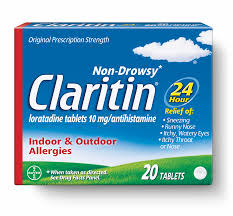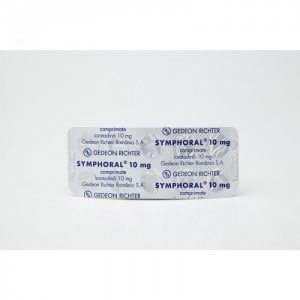Description
WHAT LEVITRA IS USED FOR
Levitra is used to treat erectile dysfunction, Erectile dysfunction, also known as impotence in adult males, is the inability to obtain and/or maintain a hard erect penis suitable for sexual activity. Levitra tablets contain the active ingredient vardenafil (present as vardenafil hydrochloride trihydrate) which belongs to a group of medicines called phosphodiesterase type 5 inhibitors. These work by relaxing the blood vessels in the penis when you are sexually aroused. This allows blood to flow into the penis, allowing you to get an erection in the natural way. Levitra will only work if you are sexually excited. It will not increase your sex drive. Levitra is not approved for use in women. Levitra tablets are not addictive. BEFORE YOU TAKE LEVITRA When you must not take it Do not take Levitra if you have an allergy to: • any medicine containing vardenafil hydrochloride trihydrate • any of the ingredients listed at the end of this leaflet. Some of the symptoms of an allergic reaction may include: • shortness of breath • wheezing or difficulty breathing • swelling of the face, lips, tongue or other parts of the body • rash, itching or hives on the skin Because sexual activity may place a strain on your heart, your doctor will need to check whether you are fit enough to have sexual intercourse.
DO NOT TAKE lEVITRA IF
Do not take Levitra if you are being treated for angina (chest pain) or other heart conditions with certain medicines called nitrates. Nitrate medicines include glyceryl trinitrate (also called nitroglycerine). Do not take Levitra if you are using the recreational drug amyl nitrite. Amyl nitrite is also known as ‘poppers’, ‘amyl’ or ‘rush’. Do not take Levitra if you are taking HIV protease inhibitors, medicines used to treat HIV infection. Examples of HIV protease inhibitors are indinavir or ritonavir. You should not use Levitra together with other treatments for erectile dysfunction. Do not take Levitra if you have ever had loss of vision due to non-arteritic anterior ischemic optic neuropathy (NAION). Do not give Levitra to children, growing adolescents or women. Do not take this medicine after the expiry date printed on the pack and blister. Before you start to take it Tell your doctor if you have allergies to any other medicines, foods, preservatives or dyes. Tell your doctor if you: •have any heart or blood vessel problems •have ever suffered a heart attack or stroke •have any kidney or liver problems •have leukaemia (cancer of the blood cells) •have multiple myeloma (a cancer of the bone marrow) •have any disease or deformity of your penis •have low or high blood pressure •have sickle cell anaemia •have stomach ulcers •have eye problems or vision lossare or receiving any other medications, including other treatment for impotence
Taking other medicines
Tell your doctor or pharmacist if you are taking any other medicines, including those that you buy without a prescription from your pharmacy, supermarket or health food shop. Some medicines may be affected by Levitra or vice versa. These medicines include: •ketoconazole and itraconazole, used to treat fungal infections •erythromycin, an antibiotic •alpha-blockers, medicines used to treat an enlarged prostate (BPH) or high blood pressure. Examples of alpha-blockers are terazosin, tamsulosin and prazosin. Levitra can be used together with an alpha blocker if treatment with an alpha blocker is stable. HOW TO TAKE LEVITRA Follow all directions given to you by your doctor or pharmacist carefully. They may differ from the information contained in this leaflet. If you do not understand the instructions printed on the pharmacist label, ask your doctor or pharmacist for help. When and how to take it Take your dose of Levitra 25 to 60 minutes before you wish to have sex. Swallow the tablet whole with a glass of water. Sexual stimulation is required for a natural response to treatment with Levitra. Levitra can be taken with or without food. Levitra may be administered at any time with tamsulosin. For other alpha-blockers, ensure there is at least 6 hours between the time you take your alpha-blocker tablet and the time you take your Levitra tablet (seeTaking other medicines). The medicine may be taken anywhere between 15 minutes to up to 5 hours before sexual activity. The amount of time it takes to start working varies from person to person, but it normally takes between 25 to 60 minutes. If you are not sure what to do, ask your doctor or pharmacist. If you have trouble remembering when to take your medicine, ask your pharmacist for some hints. If you take too much (overdose) Immediately telephone your doctor, or the Poisons Information Centre, or go to the accident and emergency department at your nearest hospital, if you think you or anyone else may have taken too much Levitra. Do this even if there are no signs of discomfort or poisoning. You may need urgent medical attention.
WHILE YOU ARE USING LEVITRA
Things you must do Tell all the doctors, dentists and pharmacists who are treating you that you are taking Levitra. If you are about to start taking any new medicines, especially nitrates, tell your doctor or pharmacist that you are taking Levitra. See “BEFORE YOU TAKE LEVITRA” for a list of common nitrate medications. Tell your doctor if you notice a sudden decrease or loss of hearing. Ringing in the ears and dizziness may also occur. Please also be aware that you may have to take treatments like Levitra a few times before you get the best response. If you’re still not getting a response, speak to your doctor who may need to adjust your dose. Things you must not do Do not use the recreational drug amyl nitrite (sometimes called ‘poppers’, ‘amyl’ or ‘rush’) while you are taking Levitra. Do not take Levitra if you are taking HIV protease inhibitors, medicines used to treat HIV infection. If you get an angina attack whilst taking Levitra, do not take nitrate medicines to relieve the pain. Tell your doctor immediately or contact your nearest emergency department. Make sure that your doctor knows you are taking it. Do not take more than one dose of Levitra a day. If Levitra does not help you get an erection, or if your erection does not last long enough to complete sexual intercourse, tell your doctor. Do not give your Levitra tablets to anyone else, even if they have the same condition as you. What to be careful of Drinking alcohol can temporarily impair the ability to get an erection. To reduce impairment, do not drink large amounts of alcohol before sexual activity. Be careful driving or operating machinery until you know how it affects you. Levitra tablets may cause dizziness or faintness in some patients. The ability to drive and/or operate machinery may be impaired. If you drink alcohol, dizziness or faintness may be worse.
SIDE EFFECTS
Tell your doctor or pharmacist as soon as possible if you do not feel well while you are taking Levitra. All medicines can have side effects. Sometimes they are serious, most of the time they are not. You may need to stop taking the tablets or have medical treatment if you get some of the serious side effects. Tell your doctor if you notice any of the following and they worry you: •headache •dizziness or light-headedness •flushing •a stuffy or runny nose •dyspepsia (heartburn) •nausea These are the more common side effects of Levitra. They are usually mild and short-lived. Very rarely, your erection may persist for longer than usual. If your erection continues for longer than four hours, or if you have a painful erection, you should seek medical attention.
Other uncommon or rare side effects may include the following: •visual disturbance or a greater awareness of light •watery, irritated or painful eyes •increase or decrease in blood pressure •feeling faint or fainting •sleepiness •nose bleeds muscle aches/stiffness •back pain/joint pain •anxiety •abdominal pain
In rare instances, men have lost eyesight some time after taking drugs to treat erectile dysfunction (also known as impotence). It is not known at this time if Levitra causes this. If you experience sudden decrease or loss of vision – stop taking Levitra and seek immediate medical attention. Sudden decrease in hearing or loss of hearing has been reported in men taking medicines to treat erectile dysfunction (also known as impotence). It is not known at this time if Levitra causes this. If you experience sudden decrease or loss of hearing – stop taking Levitra and seek immediate medical attention.
You should tell your doctor immediately, or be reviewed in the accident and emergency department at your nearest hospital if you have any of the following: •severe chest pain •angina •irregular heart beats or palpitations •loss of consciousnessThese are serious side effects. You may need urgent medical attention or hospitalisation.
Serious life-threatening allergic reactions have been reported.
The signs of an allergic reaction are listed below. If the following happens, stop taking Levitra, and tell your doctor immediately, or go to accident and emergency at your nearest hospital: •rash •swelling of the face, lips, tongue or other parts of the body •shortness of breath, wheezing or trouble breathing. Other side effects not listed above may also occur in some patients. Tell your doctor if you notice anything else that is making you feel unwell. Do not be alarmed by this list of possible side effects. You may not experience any of them.
AFTER USING LEVITRA
Storage Keep your tablets in the blister pack until it is time to take them. If you take the tablets out of the box or the blister pack they may not keep well. Keep your tablets in a cool dry place where the temperature stays below 30°C. Do not leave the tablets in the car on hot days. Do not store it or any other medicine in the bathroom or near a sink. Heat and dampness can destroy some medicines. Keep your tablets where children cannot reach them. A locked cupboard at least one and a half metres above the ground is a good place to store medicines. Disposal If your doctor tells you to stop taking Levitra tablets or the tablets have passed their expiry date, ask your pharmacist what to do with any that are left over. Return any unused medicine to your pharmacist.





Reviews
There are no reviews yet.